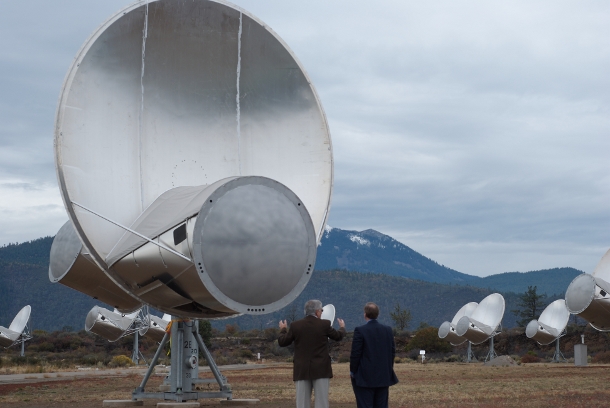Alien hunters told to search for artificial intelligence

Researchers must hunt for smart machines as well as biological organisms
Man's hunt for alien life should be broadened to start looking for intelligent machines developed by extra-terrestrials (ET), according to a veteran ET researcher.
Seth Shostak, senior astronomer with the Seti Institute - the US organisation involved in searching for intelligent alien life - has suggested that synthetic artificial intelligences (AIs) may be present in areas of the universe previously thought to be uninhabitable.
By only searching for alien radio messages in solar systems believed to be habitable by biological creatures, Shostak said, humans may be limiting their chances of finding extra-terrestrial intelligence; particularly as AIs are likely to be longer living than their biological counterparts.
"Our experiments to find extra-terrestrial life are predicated on the assumption that it is most likely to be found on so-called 'habitable worlds'," Shostak said in a paper in the journal Acta Astronautica.
"While these postulates might be our best guide for finding biology, they could be misleading us in the search for extra-terrestrial intelligence."

The Allen Telescope Array that the Seti Institute uses to search for radio messages from alien civilisations
(Photo credit: C G-K Colby Gutierrez-Kraybill via Flickr under the following Creative Commons licence)
Dr John Elliott, a Seti research specialist and reader in intelligence engineering at Leeds Metropolitan University, agrees there are sound scientific reasons for believing that AIs may exist elsewhere in the universe.
"Look at ourselves: within a short space of time we are developing the potential for technology such as AI, which can think and reason on its own. I'm not talking about The Terminator, more 2001: A Space Odyssey," he told silicon.com.
Elliott said AIs could be present in the galaxy "anywhere where there was an energy supply and matter to replicate themselves".
"Their lifespan could be much greater [than humans], therefore there is a greater potential for them perpetuating a civilisation.
Areas of the universe containing pulsars - spinning dead stars emitting a stream of radiation - and even black holes, previously thought to be too hostile to support life, would now become candidates for supporting intelligent life, Elliott said.
According to the researcher, searching hostile areas of the universe could even uncover a communications beacon left by a long-dead civilisation.
"If we widen the net to look for these then we have a bigger chance of catching something," he said.
Although no searches for alien life are currently looking for intelligent AIs, Elliott said existing programmes could easily broaden their searches to look for intelligent machines.